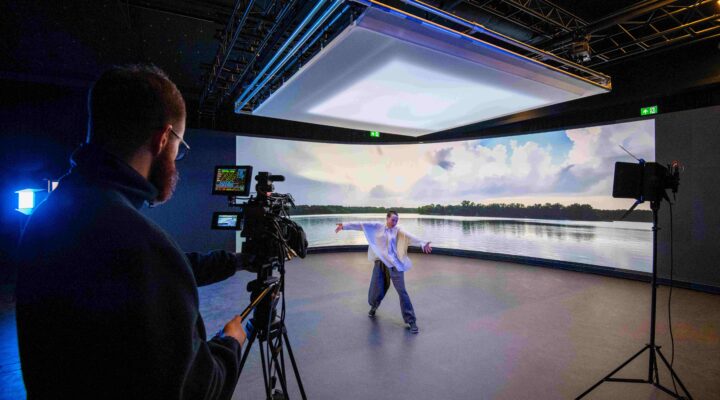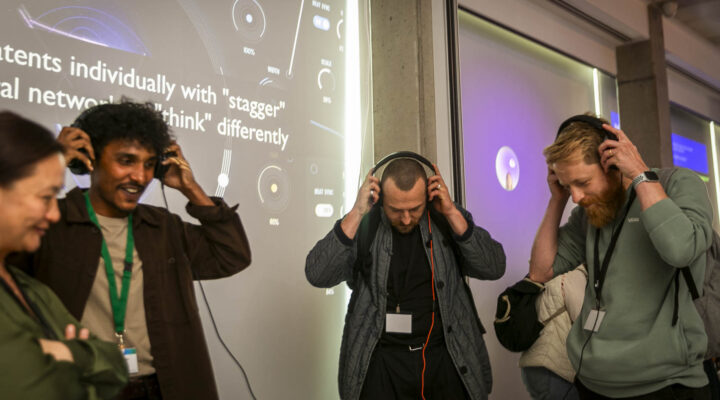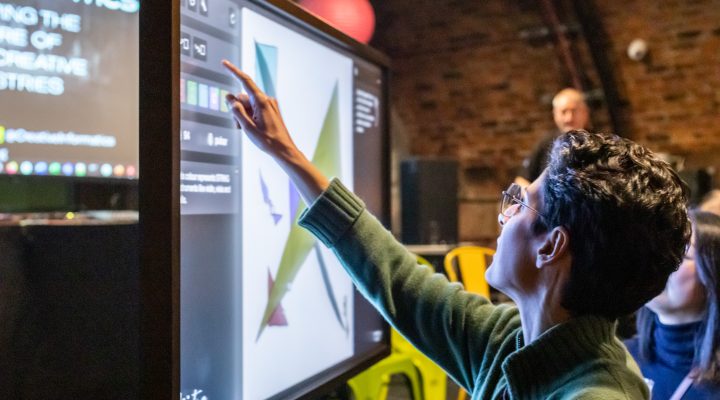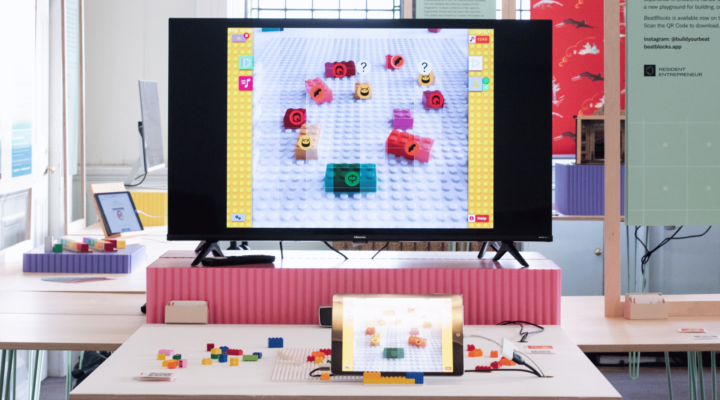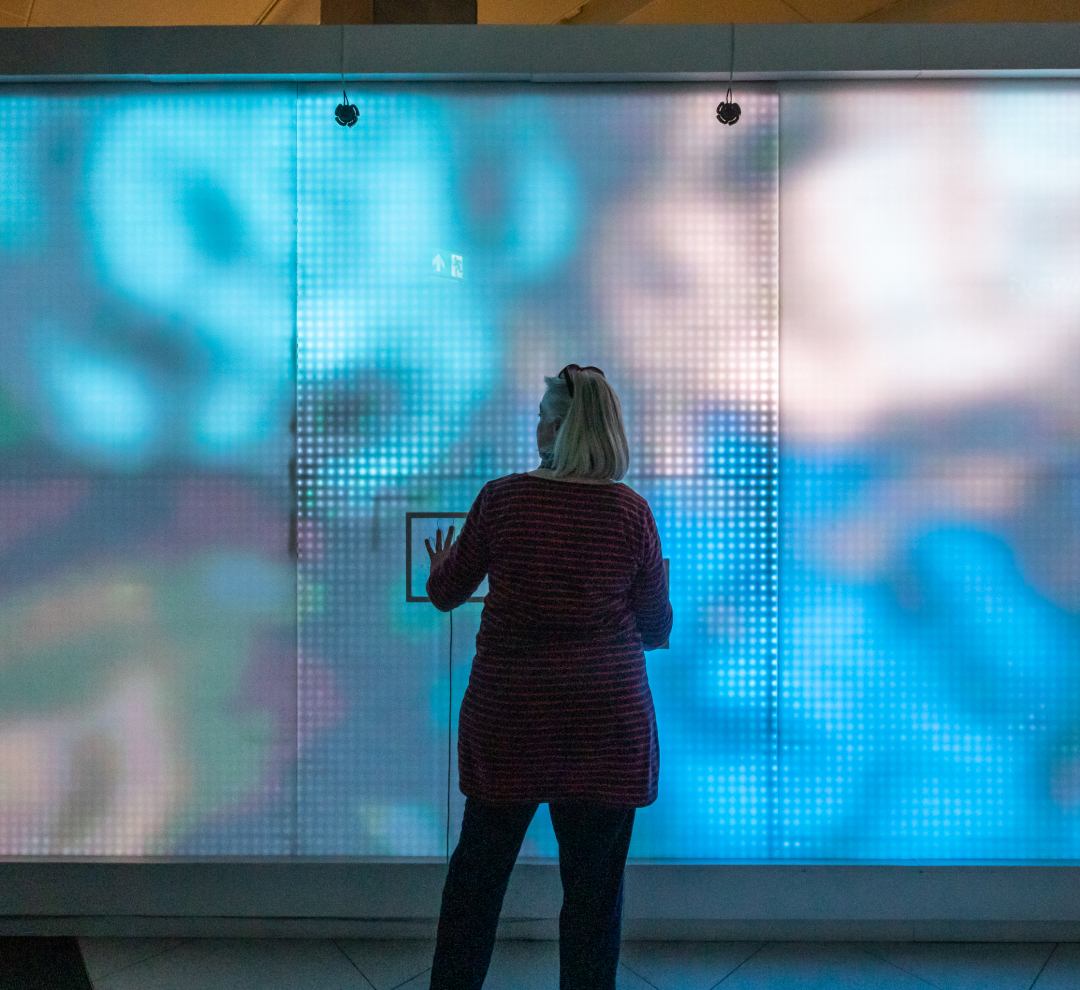
NEWS | 8 MAY 2023
In March, Creative Informatics researchers presented a panel on ‘can data driven innovation support a sustainable creative economy?’ at the ‘New Futures for the Creative Economies’ conference in Bristol which was organised by the Creative Economies Lab at Digital Cultures Research Centre and supported by Bristol + Bath Creative R&D, one Creative Informatics’ sister programmes in the Creative Clusters network.
The conference title ‘Creative, Knowledge, Cities’ (CKC2023 for short) is the third conference of this title to explore positive futures for creative work. The theme of the conference was dedicated to making visible different ways of ‘doing’ the creative economy. The conference aimed to draw on the experiences, narratives, research, thinking and stories of academics, makers, activists and thinkers alike to imagine an alternative model to our creative work. Its key question was: can we make a creative economy that is greener, more democratic, and more inclusive?
The panel presented by the Creative Informatics team addressed this broad question with research and evidence informed by our work with the Creative Informatics community. After an introduction and oversight of what Creative Informatics is and how data is the lens which has framed and underpinned our work with creatives across the entire creative industries in the Southeast of Scotland region, three papers were presented.
The recent paper ‘Detecting Data Dark Matter’ by Dr. Caitlin McDonald in collaboration with colleagues at CRAIC and Data City asked how we can collect data about the creative industries for processing and analysis in a way which is more useful for data consumers (such as policymakers & funders) & for data producers (such as businesses & individual creatives)? In short it asked how can data about creatives, be made more equitable and accessible? The call to develop a common data standard for easier data collecting, processing and sharing found much resonance with others from the creative sector. The idea that data collection on the creative industries, should be made more collaborative where data is circular and circulates between grass roots organisations and businesses at one end and policy makers and government at the other. Arguably data should be valued as a valuable commodity by grassroots organisations that is not only of value to those who often make the data demands such as policymakers but should also become valuable tools for those who sit at the data ‘coal field’; the grass roots organisations who collect the data in the first place.
The ‘Designing Creative Transactions’ presented by Dr. Chris Elsden explored new models of how people pay for creative work and new creative ways to pay creatives. This question became particularly pertinent during the pandemic when many performs had lost the opportunity to perform and thus raise income by playing in venues and collecting ticketing revenues resulted in experiments in other payments methods online during this time. Trough case studies from Creative Informatics and other creative communities he asked how we might design (financial) transactions that produce not just financial but also social and cultural relationships between creatives and their audiences. The question if we change the way in which ‘value’ is expressed might then change the ‘values’ represented, to be more representative of those social values for example.
Finally, Dr. Inge Panneels and Dr. Susan Lechelt presented an overview of how case studies from Creative Informatics revealed ways in which the creative sector is addressing sustainability in the creative economy by using data driven innovation. This was previously highlighted in a short film [insert link] which was presented in June 2022 at the New European Bauhaus [insert link], an EU initiative to place creativity at the heart of the green economy. The idea that data driven innovation has to rely on big data and artificial intelligence was challenged here as the innovation that was presented here supported:
- Efforts to change patterns of ownership and consumption
- Tools and training to support understanding of sustainability
- Platforms for empowering sustainable and circular communities
Thus, innovation was enabled not necessarily through brand new technology or big data but rather ‘small data’ and new technological developments or use of existing technology to support social innovation. The value of DDI to support Social Innovation, and to provide practical tools and metrics for better decision making. We propose that DDI is a key tool to support sustainable social innovation, which in turn is critical to enable a circular creative economy to fully develop.
In short, the panel proposed that data driven innovation in the creative industries as evidenced though research by Creative Informatics puts forward that innovation through data and technology can support better and fairer data collection on the creative sector, to support new and possibly more democratic means to be paid for creative work and support better decisions making to support a more environmentally responsible creative sector.


